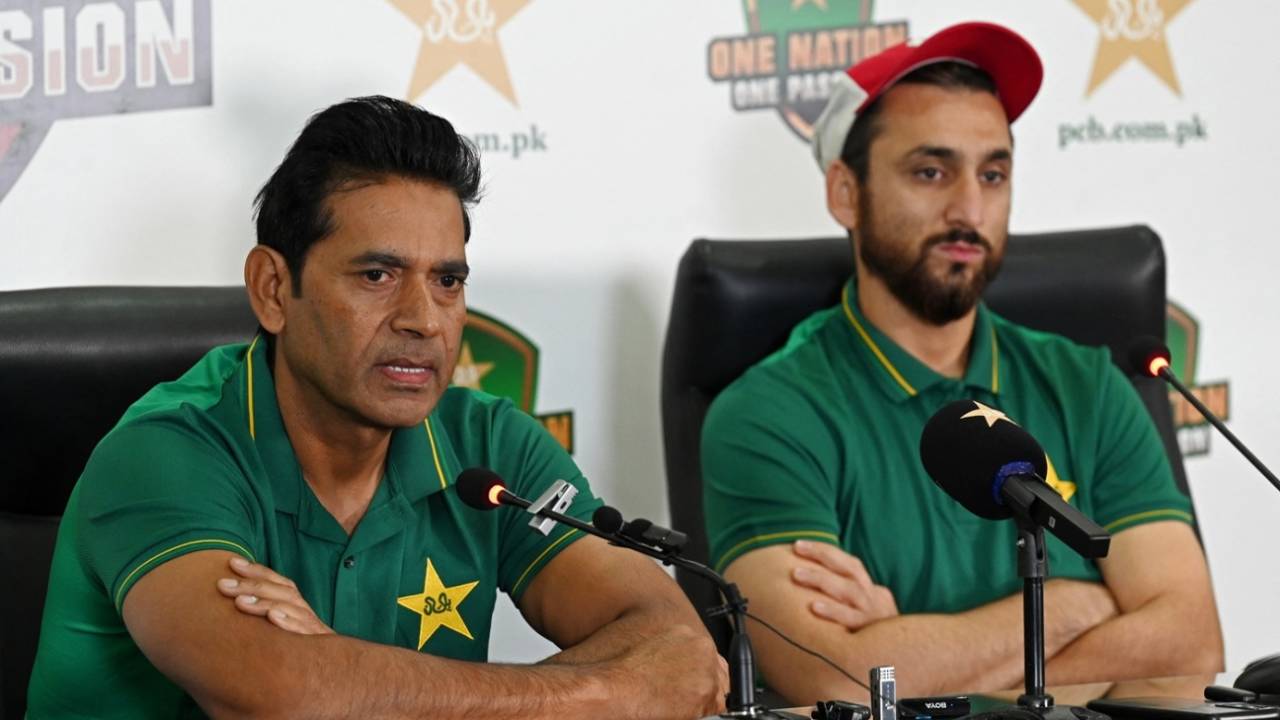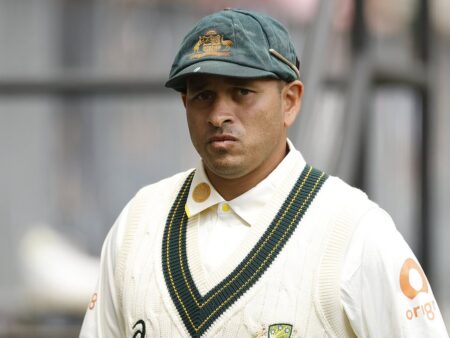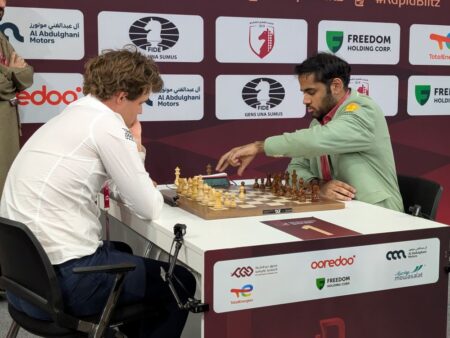‘We must prioritize our intent and approach, which are crucial in today’s cricket.’

Aaqib Javed and Salman Ali Agha acknowledge Pakistan needs improvement in T20 format. AFP/Getty Images
Salman Ali Agha has pledged to bring a ‘fearless cricket’ style as he takes on the role of Pakistan’s T20I captain, the fourth since January 2024. Agha succeeds Mohammad Rizwan for the upcoming tour to New Zealand for white-ball cricket. This continues a period of captaincy changes, previously seeing Shaheen Shah Afridi and Babar Azam in the position.
Pakistan’s performance has been underwhelming, notably with their early exit from the last T20 World Cup after losing to the USA. This has led to significant changes in the team, introducing new players and omitting some experienced ones.
Key among those omitted are Rizwan and Babar, whose cautious batting at the top order is widely considered a primary reason for Pakistan’s outdated and risk-averse batting strategy. While they haven’t been permanently excluded from the format, it’s evident they’ve been dropped rather than rested.
‘It’s an honor and a challenge,’ Agha stated at a Lahore press conference. ‘We’ve included young players from domestic cricket who embody the style we aim to adopt for the national team moving forward.’
‘We must focus on our intent and approach, which need improvement. These aspects are vital in modern cricket. This young team aims to play fearless cricket, which involves taking risks, necessary in today’s game. Failures are expected with this approach, but we will support our players.’
The PCB appointed Agha as captain with an eye towards the upcoming Asia Cup (T20 format) and the World Cup in India and Sri Lanka next year. Shadab Khan has been reinstated as vice-captain for this initiative, seen as a player who aligns with this aggressive cricket philosophy.
‘Shadab’s return is due to his captaincy experience and aggressive mindset,’ explained interim head coach Aaqib Javed. ‘His mentality, combined with Agha’s similar thinking, makes Shadab a valuable vice-captain. Their combination is promising.’
Aaqib, also head of selectors, remains in these roles for the T20I and ODI series against New Zealand, despite coaching change rumors. Regarding Babar and Rizwan’s exclusion, he directly linked it to Pakistan’s desired change in playing style.
‘No one is permanently ruled out, but currently, we feel the need to introduce new, younger players and change our cricket style. Many teams now differentiate their T20 squads significantly, up to 80-90% different personnel.’
The absence of Afridi and Haris Rauf from the ODI squad adds to the impression of major changes. Aaqib clarified they need to return to domestic cricket to enhance their skills.
‘Top players like Babar, Shaheen, Rizwan are constantly traveling, lacking time for domestic cricket,’ he noted. ‘Now they have the opportunity. Without four-day cricket, Test and ODI improvement is unlikely. Playing primarily T20 cricket year-round then transitioning to Tests or ODIs isn’t effective.’
‘Players must consider their own development. Should they sacrifice T20s to play four-day or List A cricket to regain form? This self-assessment is crucial.’
Agha and Aaqib both mentioned developing a pool of 20-25 players for Pakistan over the next 18 months, emphasizing the importance of supporting them through setbacks.
Aaqib acknowledged the instability in Pakistan cricket recently, from which he is currently benefiting.
‘We’ve had about 16 coaches and 26 selectors in roughly two years,’ he stated. ‘Any team under such conditions would face similar challenges. Consistency from top to bottom, starting with the chairman, is essential for team progress.’










